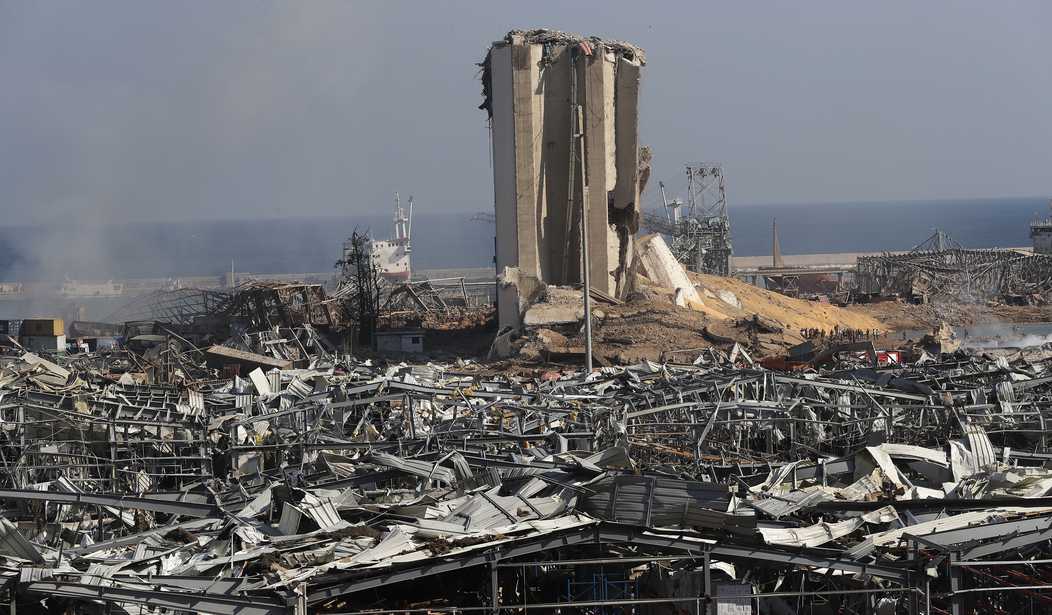It’s been called the largest non-nuclear explosion in recorded history. At 6:08 p.m. on August 4, 2020, approximately 2,750 tons of ammonium nitrate, along with 15 tons of fireworks, jugs of oil, kerosene, and hydrochloric acid being stored in a warehouse—Hangar 12—along the Beirut waterfront suddenly exploded. The blast destroyed half the city and whatever was left of faith and hope in a country that, for nearly 50 years, has bled out in full view of the world.
The ammonium nitrate arrived in November 2013 on a Russian cargo ship bound for Mozambique. No one ever claimed the cargo. No one could say why the ship was offloaded in Beirut.
And the hell of it is, no one in authority in Lebanon appears very interested in finding out exactly what happened.
Lebanon’s problems begin and end with politics. The government is a patchwork of sectarian alliances. Some offices are reserved for Christians, some are reserved for Sunni Muslims, and some are reserved for Shiite Muslims. And the fact that from 1975 to 1990, they all tried to kill each other in a bloody, destructive civil war has colored their society ever since.
In the late 1980s, the Shiite terrorist group Hezbollah entered the picture and decided that Lebanon needed their protection. From then on, the terrorist threat hung over the rest of the government, knowing that if they tried to do something the terrorists didn’t agree with— like disarming them as they were supposed to do at the end of the civil war—they would likely suffer the fate of several politicians who crossed Hezbollah and ended up dead.
Related: Mysterious Massive Explosions Rock Beirut
So it was this government—fractured by sectarianism, under threat from terrorists, and riddled with spectacular corruption—that was supposed to find out what happened three years ago that caused an explosion that resulted in a still unknown loss of life.
So far, they haven’t managed to do much at all. No one knows what the body count from the blast is. The AP has counted 218 dead, but that’s surely an undercount. What’s clear is that many people knew about what was in Hangar 12. Several people tried to warn their superiors about the danger, and there is evidence that the prime minister and president were aware of what was in Hangar 12.
And yet, the disaster that was waiting to happen happened. One eyewitness gave her searing account of the moments after the blast.
This is no figure of speech. Beirut exploded. Once ignited, the ammonium nitrate released a blast force so great, it registered as a seismic event and was felt as far away as Cyprus. In the countless videos capturing the moment, the mushroom cloud billows up, and the shock wave surges across the city, pulverizing everything in its wake, until it reaches the person holding the camera. After this, the image is frenzied and tumbling, sometimes going abruptly dark. For those of us in the city that day lucky enough to survive, it felt like the apocalypse: your body shoved violently backward, the surrounding world shattering in an instant, and a roar so loud, it still makes me retch to remember.
There is a movement underway for an international inquiry by the UN since the government has been reluctant to release information that may point the finger at the wrong people.
Lebanese and non-Lebanese victims alike have seen justice delayed, with the investigation stalled since December 2021. Lebanon’s powerful and corrupt political class has repeatedly intervened in the work of the judiciary.
In January, Lebanon’s top prosecutor Ghassan Oueidat ordered the release of all suspects detained in the investigation.
“The political class have used every tool at their disposal — both legal and extra legal — to undermine, obstruct, and block the domestic investigation into the blast,” said Aya Majzoub, deputy chief for the Mideast and North Africa at the rights group Amnesty International.
Lebanon’s previous experience with a UN investigation did not go well. A UN tribunal investigated the death in a car bomb explosion of Lebanon’s beloved former Prime Minister Rafic Hariri, who was assassinated on Valentine’s Day 2005. The evidence was overwhelming that the hit had been ordered by Syria’s president at the time, Hafez al-Assad, and carried out by Hezbollah. In 2020, one member of Hezbollah was convicted of the crime, but three others were acquitted. And both Syria and Hezbollah were never charged.
In order for a UN inquiry to get to the truth, they would need the cooperation of the Lebanese government. Seeing that the irresponsibility and culpability for the disaster reach the highest levels of the Lebanese government, cooperation will almost certainly not be forthcoming.










